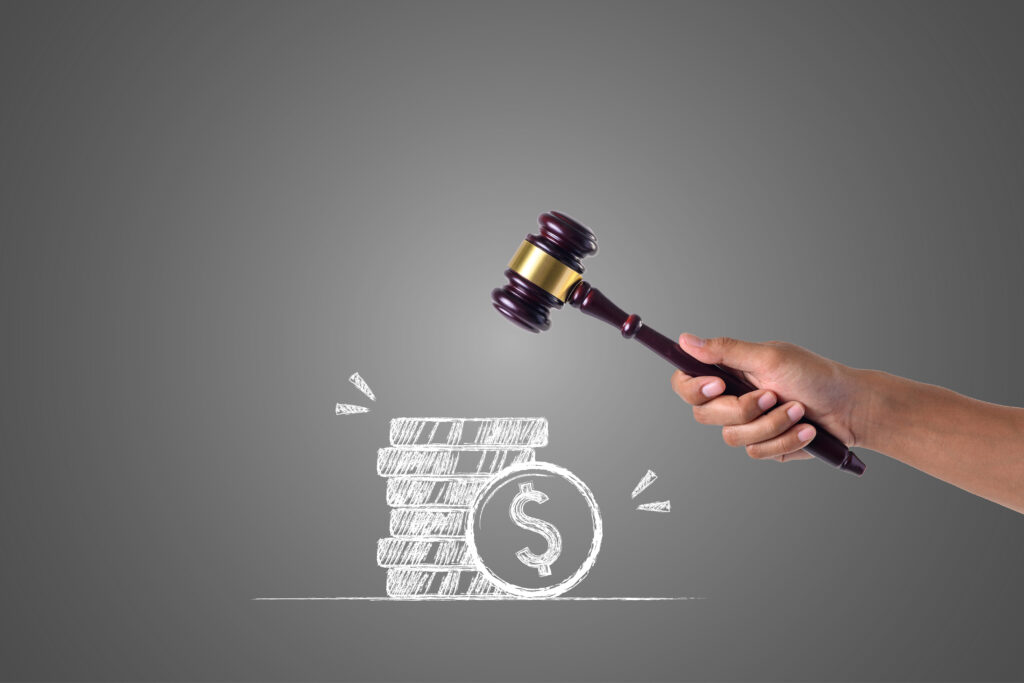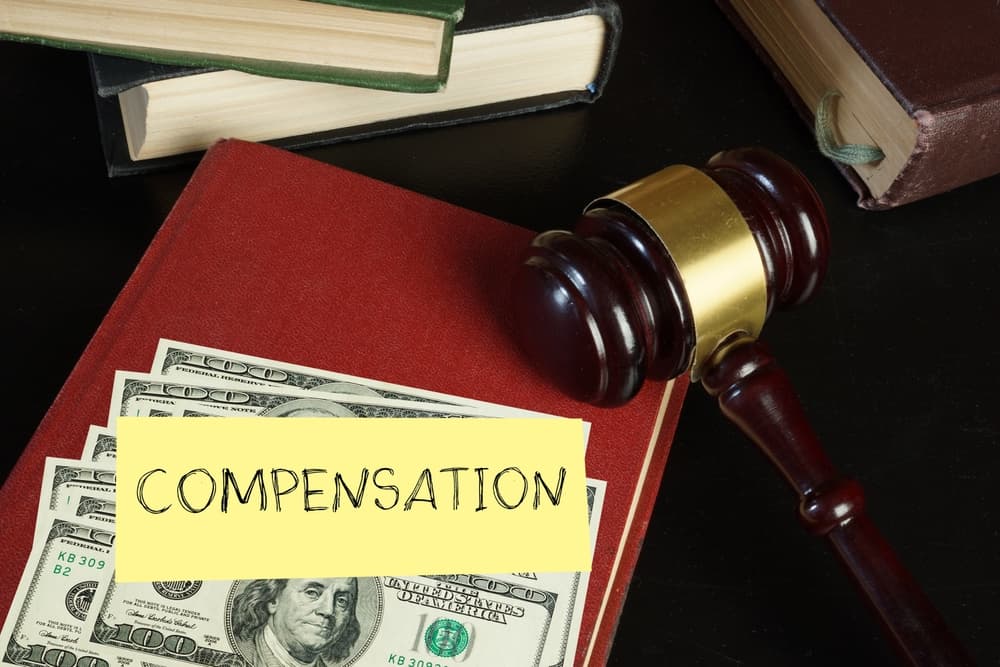
After an accident, many individuals wonder, "How long after settlement do I get my money?" It is completely normal to have these concerns and questions.
The timeframe for receiving your settlement money can vary depending on the complexity of your case, the negotiation process, and any outstanding debts.
To ensure you receive your settlement promptly, work with a knowledgeable personal injury attorney who can guide you through the process and advocate for your rights.
Factors that Determine How Long You Will Receive Your Settlement Money
The length of time it takes to receive your settlement money can depend on several factors. Let's take a look at some of the key factors that can influence the timeline:
The Complexity of Your Case
The more complex your case, the longer it may take to resolve. A case may take longer to resolve if it involves:
- Multiple liable parties, such as in truck accidents or medical malpractice cases
- Extensive documentation, including medical records, accident reports, and expert testimonies
- A prolonged litigation process if negotiations don’t yield a fair settlement
Your attorney will work diligently to streamline the process to help secure a fair and timely resolution.
How the Negotiation Process Unfolds
After an initial settlement offer is made, the negotiation process begins, which can take time due to:
- Back-and-forth discussions between attorneys and insurance companies
- Delays in reaching an agreement on compensation amounts and settlement terms
- Additional demands from either party before finalizing the settlement
Your attorney will negotiate aggressively on your behalf, ensuring your rights and financial interests are protected.
Whether There Are Any Outstanding Debts to Address
Before you receive your settlement money, you may need to resolve any outstanding financial obligations, which may include:
- Medical bills from hospitals, doctors, or rehabilitation centers
- Liens placed on your settlement by healthcare providers or insurance companies
- Other financial obligations, such as child support or legal fees
Your attorney will handle negotiations with creditors and work to minimize any deductions from your settlement, ensuring you receive your funds as quickly as possible.
Whether You Need Court Approval
Certain cases require court approval before finalizing a settlement, such as if:
- Your case involves a minor or someone legally incapacitated
- A judge needs to review the fairness of the settlement in certain jurisdictions
- Court schedules cause delays, depending on workload and processing times
Your attorney will manage all necessary paperwork and submit your settlement for court approval as efficiently as possible.
While various factors can affect how quickly you receive your settlement, having a skilled attorney on your side ensures the process moves forward as smoothly and swiftly as possible.
What You Might Do to Get Your Settlement Money as Soon as Possible
While some factors affecting the timeline are beyond your control, there are steps you can take to help expedite the process and receive your settlement money sooner:
Hire an Experienced Attorney
One of the best ways to ensure a smooth and timely settlement process is to hire an experienced attorney who has proven success in your type of case.
Look for an attorney with a background and focus in:
- Personal injury
- Wrongful death
- Any other areas of law related to your case
Your lawyer will take the lead in your case. All you have to do is hire them.
Gather and Organize Documentation
To speed up the settlement process, gather and organize all relevant documentation related to your case. Your attorney will lead the documentation process, but keep all relevant documentation already in your possession.
Relevant documentation may include medical records, police reports, witness statements, and even journals detailing pain, emotional anguish, psychological distress, and other hardships you're enduring. Having all the necessary paperwork readily available will help your attorney build a strong case and present it to the opposing party or insurance company.
Communicate Openly with Your Attorney
Maintaining open lines of communication with your attorney throughout the settlement process is important.
Be proactive in:
- Providing updates about your health and other case-related developments
- Responding to requests for information
- Attending meetings and hearings as required
- Being upfront, honest, and assertive with your lawyer (they can handle it)
Clear and regular communication will help your attorney stay informed about your case and address any issues that may arise promptly.
Keep Your Attorney Informed of Any Changes
If there are any changes in your circumstances during the settlement process, such as changes in your health or financial situation, inform your attorney immediately.
These changes may require adjustments to your settlement agreement or additional negotiations. By keeping your attorney informed, they can take appropriate action to protect your best interests.
How a Personal Injury Attorney Secures the Compensation a Client Deserves

When you suffer an injury due to someone else's negligence, make securing fair compensation a top priority. You likely have a brief window to secure the money you deserve, and your long-term financial security.
A skilled personal injury attorney will fight to ensure you receive fair compensation for medical expenses, lost income, pain and suffering, and all other damages.
Here's how they may do it:
Conducting an In-Depth Case Review
Before taking any legal action, your attorney will carefully examine every aspect of your case by:
- Analyzing accident reports, medical records, and any available video footage
- Gathering witness statements to corroborate your version of events
- Consulting medical and financial experts to determine the long-term impact of your injuries
- Estimating the full scope of damages, including medical expenses, income loss, and emotional distress
This thorough review backs your claim with solid evidence and overlooks no potential compensation.
Gathering Critical Evidence to Strengthen Your Claim
To build a compelling case, your lawyer will collect key evidence that demonstrates both liability and the extent of your injuries.
This includes:
- Medical reports and treatment plans that outline your recovery process
- Photographic and video evidence from the accident scene
- Police or incident reports that document the facts of the case
- Testimony from accident reconstruction specialists or medical professionals
- Employment records showing lost income and the impact on your ability to work
Having clear, indisputable evidence makes it harder for insurance companies to deny or devalue your claim.
Negotiating with Insurance Companies for Maximum Compensation
Insurance adjusters often employ strategies to minimize settlements.
A personal injury lawyer knows how to counter these tactics by:
- Advising you to reject lowball offers
- Refuting false claims of shared fault that can reduce your payout
- Highlighting the long-term financial and medical consequences of your injuries
- Threatening legal action if the insurance company refuses to negotiate fairly
Because insurers want to avoid the cost and risk of a lawsuit, a strong attorney can often secure a much higher settlement than a victim negotiating alone.
Calculating the Full Extent of Your Losses
Many injury victims accept settlements that only cover immediate medical expenses without considering the long-term financial impact of their injuries.
A lawyer ensures that all damages are accounted for, including:
- Ongoing medical care, such as therapy, surgeries, and rehabilitation
- Lost income due to time away from work or a permanent reduction in earning capacity
- Pain and suffering, emotional distress, and reduced quality of life
- Property damage, if applicable, such as vehicle repairs after an accident
By accurately calculating your present and future damages, an attorney ensures that you won't struggle financially after you finalize a settlement.
Taking Legal Action When Necessary
If negotiations fail, a lawyer will file a lawsuit and take the case to court.
This process includes:
- Preparing legal documents and ensuring all filing deadlines are met
- Conducting depositions to gather further evidence and expert testimony
- Presenting your case in front of a judge or jury if a trial becomes necessary
Most personal injury cases settle before reaching trial, but the willingness of an attorney to pursue litigation often pressures insurance companies into offering a fair settlement before the case escalates further.
Protecting You from Insurance Companies' Bad-Faith Tactics
Insurance companies frequently try to manipulate victims into accepting less than they deserve.
A lawyer protects you from:
- Delays in processing your claim are designed to make you desperate for a quick settlement
- Deceptive questions during recorded statements that can be used against you
- Blame-shifting strategies to reduce their client's liability
- Fast, lowball settlement offers that don't account for future medical expenses or income loss
By handling all communication with insurers, your attorney protects your rights and recovers the full compensation you deserve.
Damages You Should Receive in a Personal Injury Settlement
If you've suffered an injury due to someone else's negligence, a personal injury settlement can compensate for financial losses, physical pain, and emotional suffering.
The amount you receive depends on the severity of your injuries, the impact on your daily life, and the circumstances of the accident. Below are the key types of damages you can recover:
Economic Damages (Financial Losses)

Economic damages are meant to reimburse you for measurable financial losses resulting from the accident.
These include:
- Medical expenses
- Lost income
- Future lost earnings
- Property damage
- Out-of-pocket expenses
These damages ensure someone else's negligence does not financially burden you.
Non-Economic Damages (Headlined by Pain and Suffering)
Non-economic damages compensate for the emotional and physical toll of your injury, including:
- Emotional anguish, which may include anxiety, depression, PTSD, or other mental health struggles caused by the accident
- Psychological distress
- Loss of enjoyment of life
- Loss of consortium, which is the impact of your injuries on your relationships with a spouse or family members
These damages are often more difficult to quantify but are vital in ensuring you receive fair compensation.
Punitive Damages (In Cases of Gross Negligence)
In rare cases, courts may award punitive damages if the at-fault party's behavior was especially reckless or intentional, such as:
- Drunk driving accidents
- Medical malpractice due to extreme negligence
- Companies knowingly selling defective or dangerous products
Punitive damages punish the responsible party and deter future wrongdoing.
How to Use Free Consultations to Find the Right Personal Injury Lawyer
Many personal injury lawyers offer free consultations, allowing you to evaluate your options before committing to legal representation. These consultations can help you find a skilled, experienced, and trustworthy attorney to handle your case. Here's how to make the most of this process:
Prepare Before the Consultation
Preparation is always the key to success, and consultations are no exception. You might get ready for your consultation by:
- Gathering relevant documents such as medical records, accident reports, and insurance correspondence
- Writing down key details about your injury, including when and how it happened
- Preparing a list of questions about the lawyer's experience, fees, and approach to handling cases
If you're not prepared or don't know what to ask, don't worry. The law firm will make the process as easy as possible.
Ask the Right Questions
Before your consultations, think about what you want to learn about a firm and what you need them to know about your case.
Some questions you might ask are:
- How many cases like mine have you handled?
- What is your success rate in personal injury cases?
- How do you communicate with clients throughout the process?
- What are your fees, and do you work on a contingency basis?
A good question will elicit an insightful answer, so ask away.
Compare Multiple Attorneys
Don't limit your scope when looking for a lawyer. Instead, you should:
- Schedule consultations with at least two or three lawyers to compare their strategies
- Pay attention to how comfortable you feel with each lawyer's approach
- Choose an attorney who communicates well, shows confidence, and demonstrates experience
By using free consultations wisely, you can find the best personal injury lawyer to fight for the compensation you deserve.
Hire Your Attorney as Soon as Possible to Get Your Settlement as Soon as Possible

Contact an attorney near you to discuss the specifics of your case and get the information you need. Statutes of limitations can define how long you have to file your case, and you must be wary of missing the filing deadline. Protect yourself by hiring your attorney as soon as possible.
Your lawyer will guide you through the legal system and advocate for your rights, ensuring you receive your settlement money as quickly as possible. Take the first step towards securing your financial future by contacting a skilled attorney today.